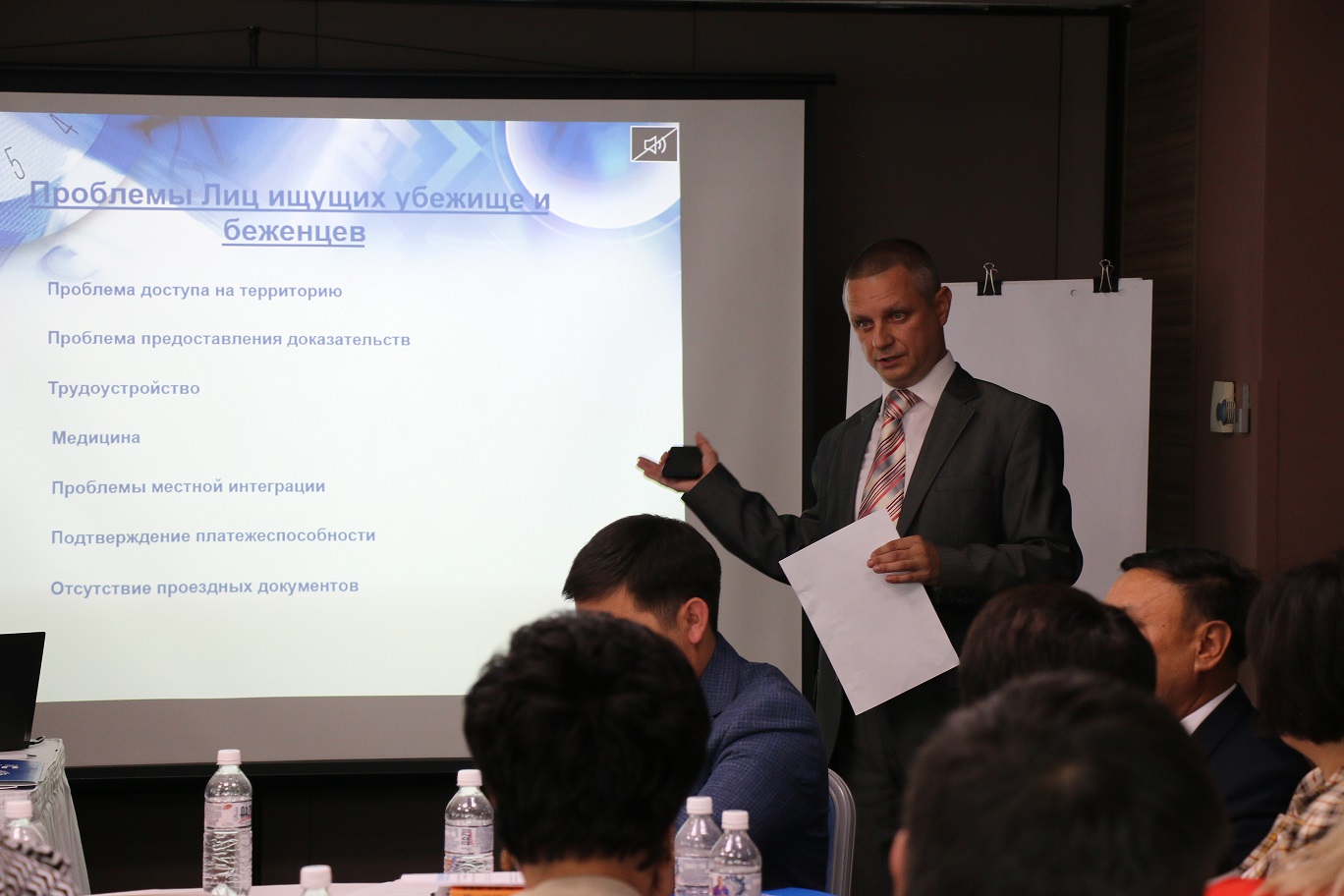
Denis Dzhivaga, Deputy Director of Kazakhstan International Bureau for Human Rights and Rule of Law (KIBHR), presented the challenges faced by refugees and asylum-seekers in Kazakhstan, including access to territory, legal employment and healthcare. UNHCR/ Jisun Choi
Almaty, Kazakhstan – The Migration Committee of the Ministry of Labor and Social Protection of the Population of the Republic of Kazakhstan, and UNHCR, the UN Refugee Agency, started a two-day training course in Almaty today, for 19 employees of 19 local executive bodies (Akimats), on local and international legislation on refugee protection.
Conducted by international experts, the course shall strengthen a unified implementation of the Law of the Republic of Kazakhstan “On Refugees” and relevant by-laws, in line with the 1951 Refugee Convention and Protocol Relating to the Status of Refugees.
“Supporting authorities to ensure that national and international refugee law are consistently applied is core to our mandate to protect and assist forcibly displaced people globally as well as in Kazakhstan,” said Hans Friedrich Schodder, UNHCR Representative for Central Asia. “Our strong cooperation with the Ministry of Labor and other partners facilitates displaced persons’ access to due rights and services, allowing them to contribute to Kazakhstan’s sustainable development.”
The training addresses the most frequently asked questions of local executive bodies, in interpreting the national refugee law and international standards in the protection of asylum-seekers and refugees.
“The Ministry has developed a new Concept of migration policy of the Republic of Kazakhstan for 2023-2027, including socio–economic aspects of the integration of refugees in Kazakhstan, taking into account the provisions of the 1951 Convention on the Status of Refugees and its 1967 Protocol,” said Askarbek Yertayev, Chairperson of the Migration Committee. “The implementation of the provisions of this Concept will contribute to the protection and support of refugees and asylum-seekers on the territory of the republic”.
As on 1 September 2023, Kazakhstan hosts 514 asylum-seekers and 327 refugees. Most refugees living in Kazakhstan are educated, possess diverse vocational skills and work experience, and are motivated to integrate and stay in the country. Over 70 per cent of refugees have been living in Kazakhstan for more than 10 years, and 22 per cent were born in the country.
In 2021, UNHCR published a comprehensive legal analysis of remaining gaps in national legislation with recommendations for improvement, promoting the alignment of national legislation with Kazakhstan’s obligations as a part to the Refugee Convention to ensure refugees can access due socio-economic rights and services, including healthcare and legal employment.
Share on Facebook Share on Twitter